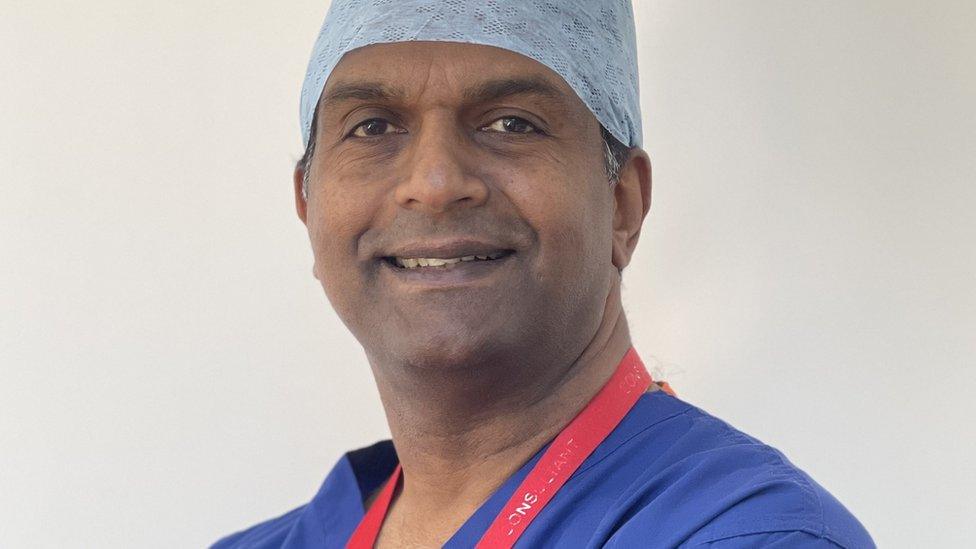Regulator criticised over whistleblower response
- Published

Major failings have been identified at the body responsible for regulating England's health and care sector.
Two reviews into the Care Quality Commission (CQC) were ordered after an employment tribunal found surgeon Shyam Kumar had been unfairly dismissed by the independent regulator after raising patient safety concerns.
The reviews found problems with how whistleblowing concerns were acted on.
But they said there was no evidence of race discrimination in the case.
The CQC said it had apologised for the unacceptably poor treatment Mr Kumar received and pledged to act on the findings of the two reviews it had commissioned following the tribunal.

Orthopaedic surgeon Shyam Kumar worked part-time for the Care Quality Commission
Mr Kumar worked part-time for the CQC as a special adviser on hospital inspections, between 2015 and 2019.
But last year Manchester Employment Tribunal found the orthopaedic surgeon was unfairly dismissed from his CQC role. He has been awarded compensation.
Mr Kumar had reported concerns regarding inadequate hospital inspections, staff bullying and serious patient harm, but claimed his concerns were ignored.
'Meaningful change'
One review, carried out by a barrister, looked at the handling of his case, while a second - led by a senior official at the CQC - looked at what wider lessons could be learnt.
The barrister-led review praised Mr Kumar for always acting in good faith, and in the interests of patient safety.
Both reviews published a string of criticisms about how the CQC executed their role as regulator of England's health and care sector.
These included an unacceptable variation in how whistleblowing concerns were responded to, with evidence that some cases passed on to the regulator had been handled poorly.
And, while no evidence of direct, or indirect, race discrimination was identified, the CQC was told it needed to do more work to identify racism - such as collecting data about race when whistleblowers raise concerns, in order to help monitor how people from different ethnic minorities are treated.
CQC chief executive Ian Trenholm said he was grateful for Mr Kumar's input into the reviews - and apologised again for the "unacceptably poor treatment" the surgeon had received.
"Now we have received these reports, it's important that we take time to consider how they can be a catalyst for meaningful change," said Mr Trenholm.
Related topics
- Published25 November 2021
